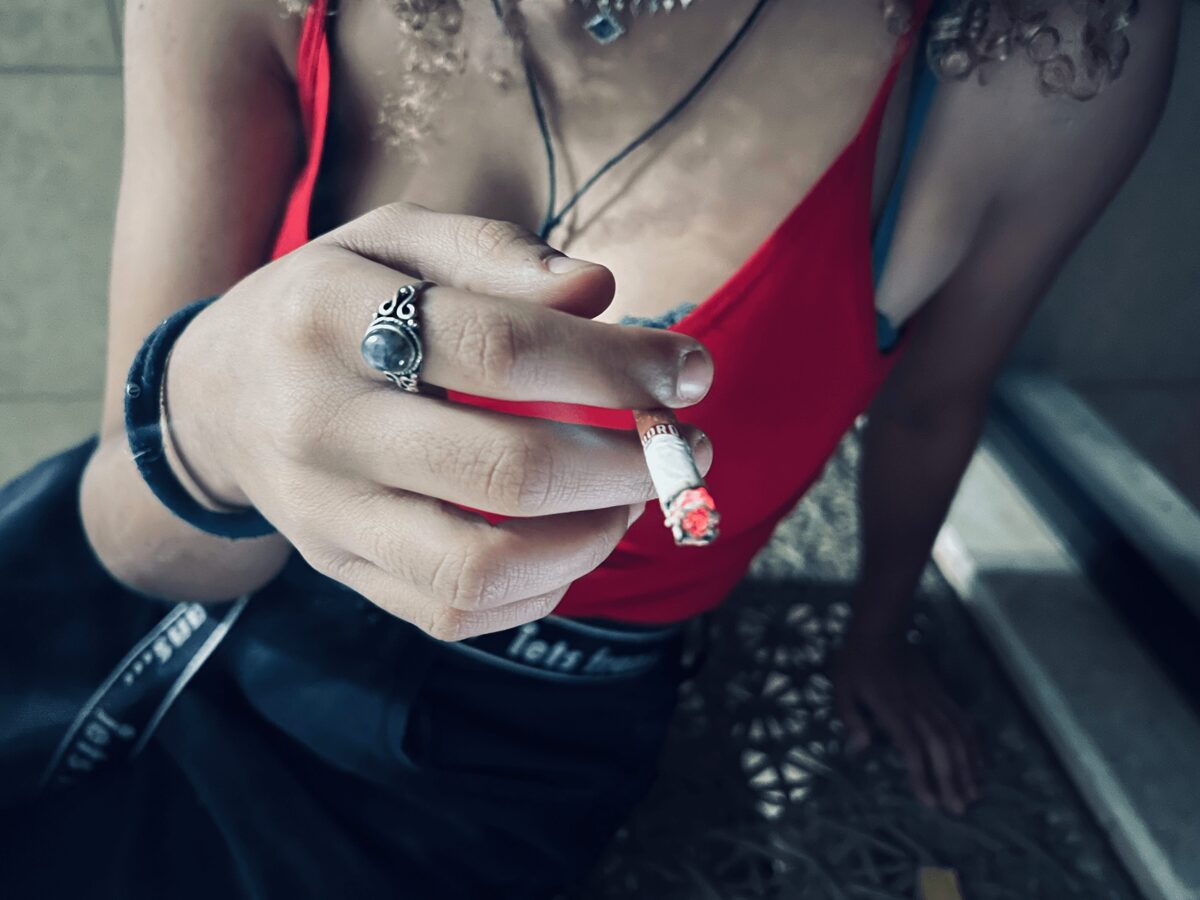WRITING
“Why do you smoke?” I once asked a friend. “Because a lot of things happened to me, and I cope with it” she replied. “Why don’t you go to a therapist?” I asked. “Because it’s not as cool as smoking or drinking”. I was stunned by her answer. “But who told you smoking and drinking is cool?” I asked again. She took a puff, inhaled then exhaled it and said, “Movies and series did”.
I was surprised of her answer at first and then I laughed it off and changed the subject.
Later that night, I kept questioning myself “Where does this idea that smoking or drinking or having a specific type of attitude makes your trauma okay?” Then I realized that the trope of woman acting this way due to her traumatic events and experiences is the trending trope.
Shows such as Sex Education, a Netflix’s original show, use this trope. Maeve Wiley is a secondary main character to the show and is known for her rebellious, edgy, and very strong personality. Throughout the seasons we learn that Maeve has had her fair share of traumatic events and they made her who she is. Looking at it from far, one can tend to say “Ah, okay, so she is acting this way because she has endured so much in her life” or “It’s okay, let her be like that, her attitude is justified by the traumatic events that happened in her life.” This is not at all okay and this way of thinking or justifying the attitude is very problematic.
Netflix, instead of promoting the image of a woman who needs help, who has gone through traumatic periods in her life and is not okay, who suffers from panic attacks, from breakdowns, from pain that is unendurable, from flashbacks that haunts her all the time and keep replaying in her head, who needs to go to a therapist and deal with her trauma, they are romanticizing her trauma, meaning they are making it more appealing than it actually is, by showing her as this strong, rebellious woman who has built up this wall, who smokes, drinks, do drugs as a coping mechanism and continues her life normally, the girl who does not accept help.
When someone romanticize trauma or any kind of mental illness, the downside of it is often ignored which gives the impression to anyone that having a mental disorder makes you interesting and mysterious. While of course one can understand that unresolved trauma is very hard to deal with and has a lot of consequences which can be such as appealing to addictive behavior, constant anxiety, panic attacks and more on, but the real problem is the way she is represented, the way she acts.
This is not the first time that Netflix has been accused of romanticizing mental illness. Netflix’s Thirteen Reasons Why has been accused of romanticizing suicide and many film critics were extremely worried that this glamour of suicide might make people who are suffering from suicidal thoughts push them to do it. The show talks about Hanna Baker, a girl that commits suicide and records tapes blaming people who are the cause of her suicide which are later listened to by her classmate Clay Jensen. The series does not focus on her internal feelings before she kills herself, it focuses on avenging her suicide by using tapes and glorifying the survivor’s guilt. The show feels like it is a call for revenge fantasy rather than raising awareness about mental illness. It considers suicide as a revenge tool which is horrifying. This show fails to raise awareness of mental illness and instead romanticize it because at the end, even if Hanna Baker died, at the end she got the attention she wanted all along and this is a very scary representation because it can easily trigger anyone who has suicidal thoughts. Suicide is not a joke. It is not a tool for revenge or attention seeking. It is a mental illness that should be treated.
When the portrayal of mental illness is romanticized, it can negatively affect the audience especially the viewers that are already suffering from one or are easily triggered and have a pre-disposition towards it. The viewers will want to be like these characters. There are multiple shows other than Sex Education that endorse this trope and it has affected many girls or young women out there. Even if it is not the point of the TV show, it is sending a message that “trauma makes you cool” and “not going to a therapist instead you should use alcohol or smoking as a coping mechanism”. Many young women are affected by this, instead of going to a therapist, they shut everyone from their life, cope alone, refers to smoking or drinking, wear clothes and have an aesthetic as close as possible from the characters that are the focus of this trope.
Netflix should stop with this trope and instead should resort to actual professional help or even someone who has experience a mental disorder when wanting to use mental illness in any of their show because the normalization and romanticizing of any kind of mental health is butchering the understanding of the audience of what they look like. Netflix should put more effort and take into producing more TV shows that encourage people to go therapy or resort to someone for help with any traumatic event that has happened or is happening to them rather than give them the image of letting everything inside and falling into dark and bad habits.




